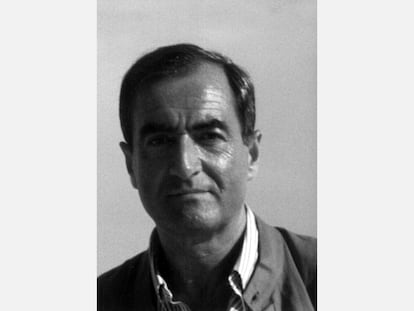Luis Matilla, who died last Thursday in Madrid at the age of 86, leaves a major legacy in Spanish theater for children. His first work for this audience The man with a hundred hands made visible the difficulties in the social integration of people with disabilities, at a time, 1966, when inclusion was a concept that was still very distant.
He wrote that work the same year he made his first work for adults, A sweet invasion. This double emergence in theatrical authorship gave clues to what was a very extensive creation of texts, with which he garnered a good number of awards, among which the four times he won the SGAE award for authorship or the National award, awarded by the association ASSITEJ Spain.
With a restless and active personality, Luis did not limit himself to the solitude of writing in his studio, but rather entered fully into stage creation, even performing on some occasions. Since the 70s he was linked to the so-called independent theater with such fundamental groups as Tábano, El Gayo Vallecano, El Búho, Uroc Teatro…, in which he worked side by side with one of his great theatrical accomplices, Juan Margallo.
With these groups he toured numerous countries in the 70s, performing before communities of Spanish emigrants and exiles.
His interest in art had been forged, however, around cinema, under the influence of a filmmaker father, Eduardo García Maroto. And in that area he became part of several production teams for foreign films that were filmed in Spain, of which he liked to point out some titles by Richard Lester, such as Golfus of Rome o How I won the war.
He jumped from cinema to the study of images and there he found another vein in which to satisfy his curiosity. Luis Matilla investigated the immense power of the moving image to manipulate thought and especially that of children. Your essay The teleniños It was the first title in a series of studies dedicated to the deep interpretation of the image and the transmission of ideology through them. Thus he entered the educational field both to give talks to teachers (training them in the didactics of the image) and in parenting schools (where he liked to talk about “resigned parents” in front of the screen nanny) and even do activities with the children. own children.
Discovering education and its transformative potential was a milestone in his life, which professionally was made up of equal parts between theater, image, and education.
From there came his approach to the Educational Action pedagogical renewal movement, under the protection of which he conceived the International Theater Weeks for Children, which was the first showcase in our country of quality theater for children that was done in the world.
Thanks to that initiative, the best theater companies from around the world passed through Madrid in the 80s and a trend of dignifying theater for all audiences began.
Luis Matilla definitely promoted the idea that art for children (audiovisual or theater) must maintain the same quality standards as that dedicated to adults. He pursued this endeavor throughout his professional career, convinced that theater, by combining many arts into one, had added value and that theater dedicated to children was an essential tool to form creative, critical and selective citizens and, therefore, free.
His work will remain.

